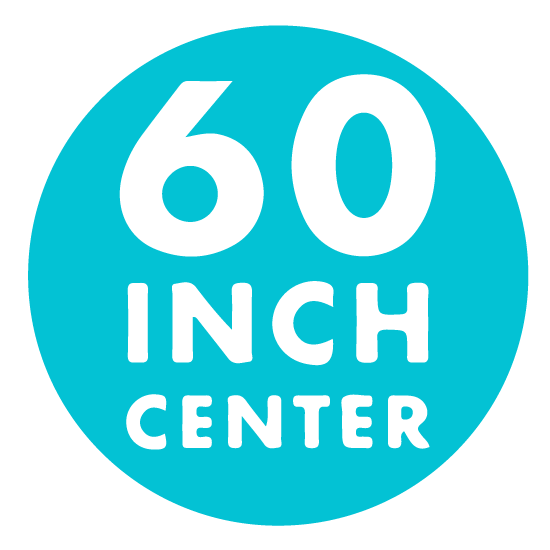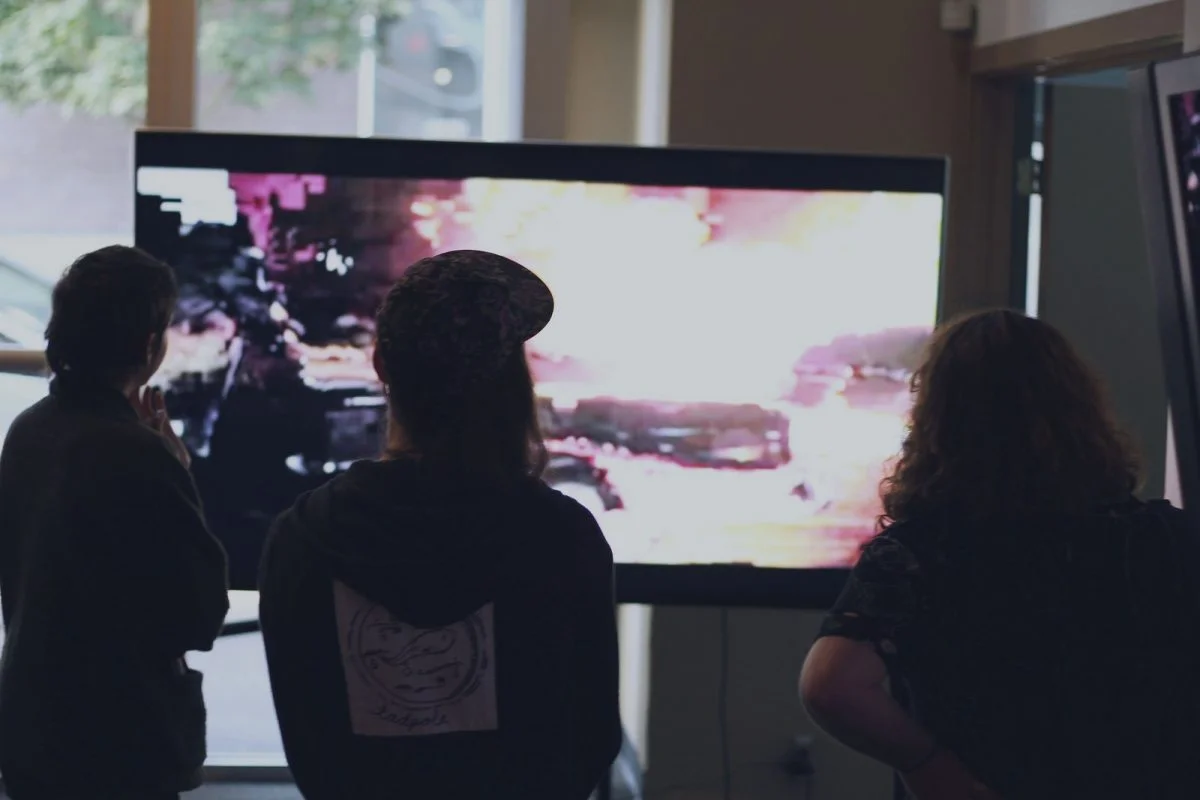Ambivalent Academia, DIY Art School at Its Finest
After 15 years teaching in formal arts education, Stephen Slappe is about to embark on his own independent alternative academic project. Future Forum is a ten month residency-style program offering intensive projects, critiques, and support for all admitted, at a humane cost of $300 a month. Slappe is both dismantling and repurposing the classroom; “While there are certainly many problems persisting in higher education, these institutions are generally full of bright, caring people who truly want to facilitate a better world.” Future Forum utilizes the best conductive energy of BFA/MFA programs without suffocating student loan debt and trivial traditional grading systems.
To produce Future Forum, Stephen Slappe has teamed up with Portland’s Open Signal which has a longstanding record of community investment and masterfully wields contemporary technology. Together they offer students and faculty an opportunity to truly better themselves and engage the best of the Portland art scene.
Interview with Stephen Slappe:
Eden Redmond: Please provide your name spelling, name pronunciation and pronouns
Stephen Slappe: Stephen Slappe (pronounced “Steeven Slappy”), he/him
ER: How long has Future Forum been in the making?
SS: I have been working on the idea that became FF on paper for at least three years. Open Signal (formerly Portland Community Media) has been expanding its identity toward a broader definition of media center. Once I understood what was happening at Open Signal, I saw an opportunity to pilot some of my pedagogical ideas so I contacted Justen Harn who was immediately excited about the proposal.
ER: Why launch now? Why launch in Portland?
SS: A confluence of circumstances makes Future Forum necessary in this time and place. Higher education has been under threat for decades from right wing ideologues and the Arts & Humanities are always first on the chopping block during budget meetings. Rich folks will always have access to advanced studies in the Arts so funding cuts to higher education and the NEA are really just a way to rob poor and working class people of opportunities to participate in cultural production. That’s unacceptable to me.
Portland has long been blessed with a population of artists who are more concerned with generosity and exchange than careerism. The cultural institutions here often reflect that ethos. Participants in Future Forum will have opportunities to connect to artists, curators, writers, and educators who have a track record of making time and space for their community to thrive.
ER: Future Forum has been referred to me as a homemade MFA program, is this an accurate description?
SS: Yes and no. It’s somewhere between a residency and a graduate program. I have taught in art colleges and universities for over 15 years and worked with MFA students for nearly a decade. There are many wonderful characteristics of that learning environment that I think are worth preserving-- an engaged cohort of artists, teaching experience, access to professional networks. However, there are some aspects of MFA programs, and art higher ed in general, that are there only to help art fit better with other disciplines and the whims of business. Future Forum starts with the notion that art doesn’t need to justify its existence to anyone. Humans have been making art longer than we’ve known how to cultivate food! The tools have changed but the drive remains the same.
One of the most exciting aspects of running this program out of Open Signal is the amount of technology available to artists who participate. Most MFA programs I know of don’t have such a high level of equipment and facilities for working with video, audio, broadcasting, and so forth. Open Signal also has existing community partnerships where artists can have a direct impact on media art education in schools and prisons. Many traditional MFA programs allow artists to teach undergraduate classes in the same institution but Future Forum at Open Signal puts artists out in the world, distributing knowledge and providing access to the tools of production. It’s a very special organization.
ER: Can you describe some of the ways FF aligns with and diverges from traditional academic structures? For instance FF follows a traditional academic calendar, but I suspect does not have standardized grading and evaluations.
SS: We purposely aligned Future Forum with traditional academic calendars so that participants can access all of the incredible lectures, performances, and panel discussions in Portland at places like PNCA, PSU, Lewis & Clark, PICA, and Reed. I will be working with folks in those organizations to develop a cultural calendar tailored to the participants in Future Forum. It’s also important that Future Forum artists have time to evolve their work and hone teaching skills that can be put into practice. By using a semester-like calendar, we can concentrate on developing innovative workshops and classes in the fall that can then be delivered in the spring.
You are correct-- there are no grades, evaluations, or degrees. Those are elements of higher education that are not necessary for art to thrive and can even be a hindrance by placing emphasis on the wrong things. Future Forum is proudly unaccredited because it allows us to experiment radically with art and education. I expect anyone who enters the program to be self-driven and fully engaged so there’s no need for superficial measurements of their work.
ER: The FF website expresses that students are expected to dedicate approximately 25 hours a week to classes. Who is this program designed for?
SS: Like a residency, this program provides artists with time, space, and access that are difficult to find in one’s daily life. Future Forum is designed for artists who work with technology and want a deep, enriching experience to propel their work to the next level.
ER: Does it cost anything for students to attend FF?
SS: Student debt is a significant problem plaguing the United States so it was important to me that Future Forum be as inexpensive as possible. It costs $300 per month for a total of $3000. There is one assistantship available that provides a fee waiver in exchange for work at Open Signal. One wonderful benefit of completing the program is that those artists will then be able to teach their own workshops and classes at Open Signal and get paid $25 an hour for their work.
ER: Who determines student admittance?
SS: Applications will be reviewed by a committee and judged on similar criteria as traditional colleges-- strength of portfolio and evidence of one’s commitment to art and community.
ER: I see that you are accepting applications for both students and teachers for FF. What is that like to build the student body and faculty up simultaneously?
SS: This is not quite accurate. Artists in Future Forum are not exactly students, they will be developing their art practice in a supportive environment while helping expand media literacy and access to production tools in the greater Portland community. In effect, they will all be artists and teachers when they walk in the door and will be artists and teachers when they leave. Future Forum is an incubator, a testing ground, a central node in an expanding network of media art production and education in Portland and beyond. We want Future Forum to model new forms of media art education.
ER: How many participants are you hoping to to sustain?
SS: We hope to host 12 artists in next year’s cohort with me as the primary faculty member. I will invite a long list of folks to join us for critiques, studio visits, and talks.
ER: The FF website mentions that it has roots in an educational program at Hollywood Theatre. Which program did it grow from and how did it become Future Forum?
SS: Future Forum is a title that started with an educational program at Hollywood Theatre. Several staff members at Open Signal cut their teeth at the Hollywood Theatre, including Justen Harn, Taylor Neitzke, and Sarah Turner. All of these folks were involved in the original iteration of Future Forum and carried it over to Open Signal. We bounced around a bunch of title ideas before deciding to go with one that already had a short, impressive track record. Future Forum seemed to fit the aspirational nature of the educational initiatives I’d developed while connecting us to the experimental past of the original program.
ER: You personally have gone the art school route, you have a BFA and an MFA and you teach in the MFA program at PNCA. Do you see models like Future Forum at odds with traditional art schools? Complementary to? Supplemental to?
SS: When initially writing about what became Future Forum, I was full of anti-institutional vitriol, wanting to tear down hierarchies of power, labor exploitation, and student debt that poison the educational well for so many artists. However, I switched my focus to addressing forces outside of individual institutions after further research on the topic. While there are certainly many problems persisting in higher education, these institutions are generally full of bright, caring people who truly want to facilitate a better world. In developing Future Forum, I had conversations with other artists who are engaged with similar projects across the country. In a meeting with my pal Sean Joseph Patrick Carney who works for Bruce High Quality Foundation University, a free MFA-like program in NYC, he told me that they had used extremely anti-institutional language when BHQFU began but had since toned down their attacks. He said they realized that many traditional institutions made good partners and often supported BHQFU in numerous ways so it made more sense to work with them. Portland already has fairly good relationships between cultural institutions and I want artists who participate in Future Forum to have access to all that this town has to offer.
Future Forum is accepting applications until June 16. Apply here: https://www.opensignalpdx.org/about/opportunities/



